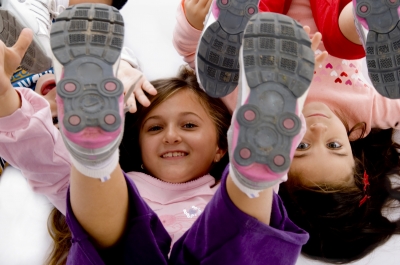Reflecting on my blog posts over the last few weeks, I have noticed a pattern. All of them are holistic approaches to the development of the whole child.
There has not been one educational theory advocating a hot-housing, pressurised approach. All of them have taken a wide lensed perspective looking into the all-round development of the child. They do not look at children and cram them full of facts and require them to perform or recite newly acquired knowledge or skills like a circus pony. They are concerned with deeper learning, with creativity and with joy. Hoops are not to be jumped through, nor boxes ticked. They provide child centred approaches and child-led learning. To see these points of commonality come to the surface of all these approaches to education surely demonstrates what works.
Today I am going to look at another approach to education which deliberately steers away from hot housing in an academically pressurised environment and instead focuses on developing children who are interested, socially responsible, community minded and resourceful:
Steiner Schools (also known as Waldorf schools)
Approaching their centenary, Steiner schools started in Germany and have now spread around the world. Given that, these past few weeks, I have been focusing on the early years, I will only focus on that part of their educational approach although many children go on to study in Steiner schools until they are 18.
Steiner schools consider the first developmental phase to be the formative early years until the age of seven. In this time there is no formal introduction of reading, writing and numeracy and no real introduction to ICT until even later. Instead, throughout this period of development, the focus is on developing the skills needed to learn: concentration, enthusiasm, motor coordination. Activities such as knitting and imaginative play are encouraged to foster creativity and resourcefulness. Non mainstream activities are embraced such as circus skills, woodwork and gardening. There is no failure because there is no standardised testing, but instead learning opportunities and the space to problem solve and try, try, try again. This mind set puts developing resilience as a real priority within Steiner schools.
As with many of the educational approaches I have looked at in the past few weeks, the focus is on experiential and sensory based learning rather than learning by rote. Using all the senses leads to ‘deeper’ learning and therefor longer retention, surely something we want to encourage.
Interestingly children in each educational “phase” stay with the same teacher all the way through. This enables them to build up a real level of trust and a deep learning relationship, although in my own experience, I do see that children respond to different teachers in different ways and that this might not work for some.
Steiner schools aim to develop children who are independent, self-sufficient, morally responsible and with a high sense of social responsibility. The school is a community and each child’s place in the community is recognised and rewarded. Equally, there are visible and direct consequences within the community if something goes wrong.
How can you implement the Steiner philosophy at home?
- – Implement ‘rhythm’ in your daily routine. The Steiner idea of ‘rhythm’ is not just that of routine and a schedule but also trying to integrate the child’s need for ‘in-breaths’ and ‘out-breaths’ – time for quiet absorption in an activity and time for movement and expending energy. Create a balance of time to think and create as well as time for release.
- – Show children, don’t tell them. Young children are masters of imitation and learn by doing. Help them explore to find their own answers to questions and gently lead them to their own discoveries. They will be much more likely to remember.
- – Allow children to use their whole body and all of their senses in the garden or the kitchen.
- – Involve children in household tasks such as laying the table, cleaning, food preparation. Get them to create menus or recipes for their favourite evening meals – it will feel as if you have gone out for dinner!
- – Whilst children should be given the opportunities to explore and use all their senses, beware over-stimulation through over-scheduling activities or too much screen time.
Many students come out of this educational system as confident, rounded and interested people. What more could we want for the torchbearers of our future?
Do you have experiences of Steiner education? What have you found? In the highly pressured world we all live in, how do you think academic hothousing compares to instilling an organic interest and love of learning? I would love to hear your thoughts.
References:
- http://www.steinerwaldorf.org.uk/whatissteinereducation.html
- http://jenkehl.com/homeschool/how-bringing-waldorf-into-your-home-can-help-your-sensory-child-part-1-rhythm/
- http://www.christopherushomeschool.org/early-years-nurturing-young-children-at-home.html














